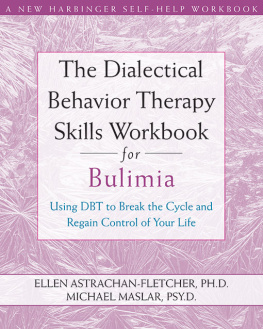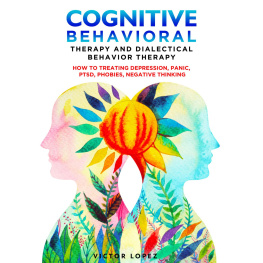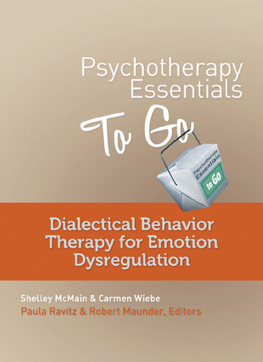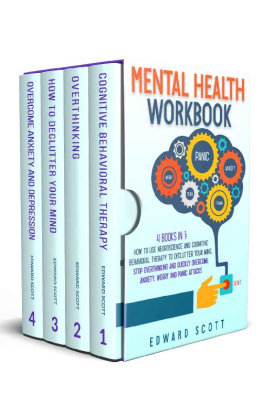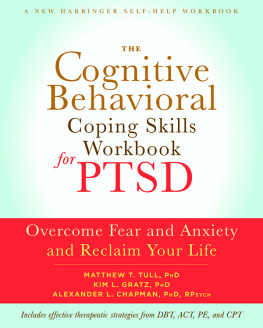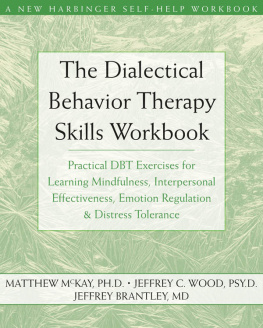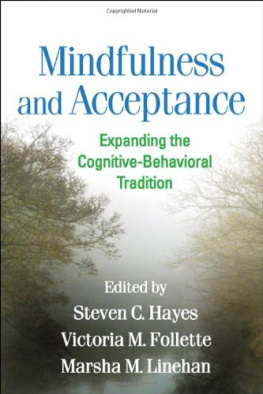Lawson PhD - Mental Health Workbook: 3 Books in 1: Cognitive and Dialectical Behavioral Therapy, Acceptance and Commitment Therapy. (CBT+DBT+ACT)
Here you can read online Lawson PhD - Mental Health Workbook: 3 Books in 1: Cognitive and Dialectical Behavioral Therapy, Acceptance and Commitment Therapy. (CBT+DBT+ACT) full text of the book (entire story) in english for free. Download pdf and epub, get meaning, cover and reviews about this ebook. year: 2021, genre: Religion. Description of the work, (preface) as well as reviews are available. Best literature library LitArk.com created for fans of good reading and offers a wide selection of genres:
Romance novel
Science fiction
Adventure
Detective
Science
History
Home and family
Prose
Art
Politics
Computer
Non-fiction
Religion
Business
Children
Humor
Choose a favorite category and find really read worthwhile books. Enjoy immersion in the world of imagination, feel the emotions of the characters or learn something new for yourself, make an fascinating discovery.

- Book:Mental Health Workbook: 3 Books in 1: Cognitive and Dialectical Behavioral Therapy, Acceptance and Commitment Therapy. (CBT+DBT+ACT)
- Author:
- Genre:
- Year:2021
- Rating:5 / 5
- Favourites:Add to favourites
- Your mark:
- 100
- 1
- 2
- 3
- 4
- 5
Mental Health Workbook: 3 Books in 1: Cognitive and Dialectical Behavioral Therapy, Acceptance and Commitment Therapy. (CBT+DBT+ACT): summary, description and annotation
We offer to read an annotation, description, summary or preface (depends on what the author of the book "Mental Health Workbook: 3 Books in 1: Cognitive and Dialectical Behavioral Therapy, Acceptance and Commitment Therapy. (CBT+DBT+ACT)" wrote himself). If you haven't found the necessary information about the book — write in the comments, we will try to find it.
Lawson PhD: author's other books
Who wrote Mental Health Workbook: 3 Books in 1: Cognitive and Dialectical Behavioral Therapy, Acceptance and Commitment Therapy. (CBT+DBT+ACT)? Find out the surname, the name of the author of the book and a list of all author's works by series.
Mental Health Workbook: 3 Books in 1: Cognitive and Dialectical Behavioral Therapy, Acceptance and Commitment Therapy. (CBT+DBT+ACT) — read online for free the complete book (whole text) full work
Below is the text of the book, divided by pages. System saving the place of the last page read, allows you to conveniently read the book "Mental Health Workbook: 3 Books in 1: Cognitive and Dialectical Behavioral Therapy, Acceptance and Commitment Therapy. (CBT+DBT+ACT)" online for free, without having to search again every time where you left off. Put a bookmark, and you can go to the page where you finished reading at any time.
Font size:
Interval:
Bookmark:
Therapy
Therapy Process
Commitment Therapy
Commitment Therapy
Progress
Behavior Therapy
Behavioral Therapy
you. Basic and advanced CBT techniques
to manage anxiety, depression and
panic attacks

- What is Cognitive Behavioral Therapy?
- Cognitive Behavioral Therapy and the Power of Thought
- Why Cognitive Behavioral Therapy?
Font size:
Interval:
Bookmark:
Similar books «Mental Health Workbook: 3 Books in 1: Cognitive and Dialectical Behavioral Therapy, Acceptance and Commitment Therapy. (CBT+DBT+ACT)»
Look at similar books to Mental Health Workbook: 3 Books in 1: Cognitive and Dialectical Behavioral Therapy, Acceptance and Commitment Therapy. (CBT+DBT+ACT). We have selected literature similar in name and meaning in the hope of providing readers with more options to find new, interesting, not yet read works.
Discussion, reviews of the book Mental Health Workbook: 3 Books in 1: Cognitive and Dialectical Behavioral Therapy, Acceptance and Commitment Therapy. (CBT+DBT+ACT) and just readers' own opinions. Leave your comments, write what you think about the work, its meaning or the main characters. Specify what exactly you liked and what you didn't like, and why you think so.

